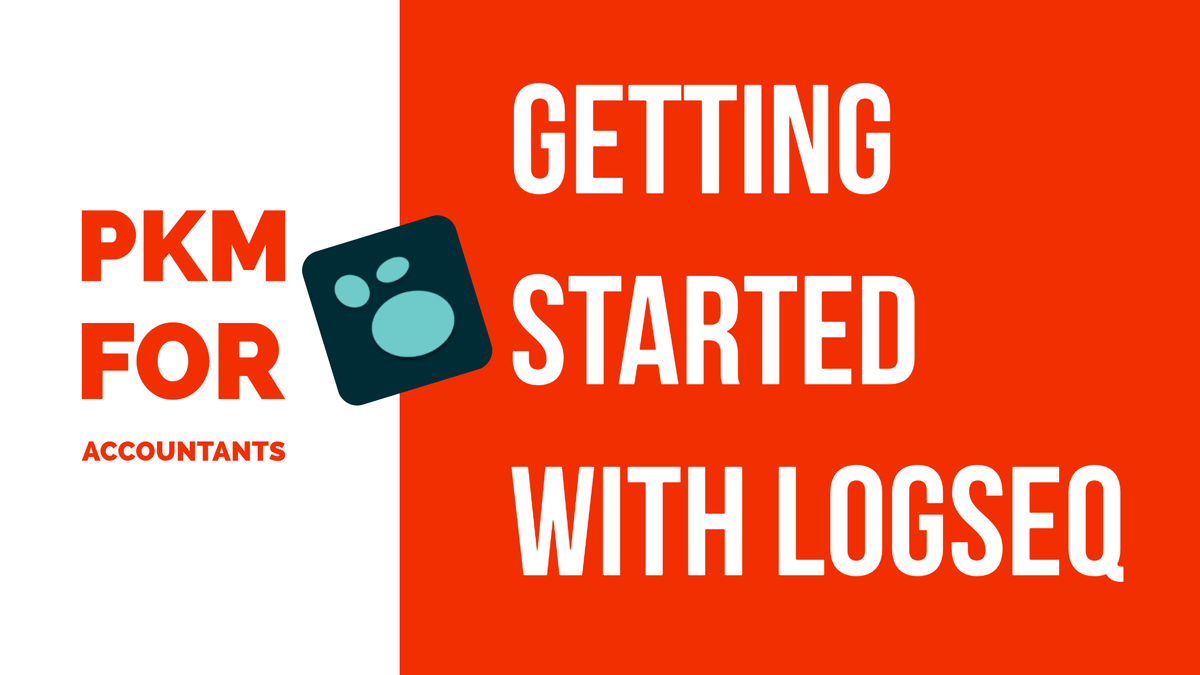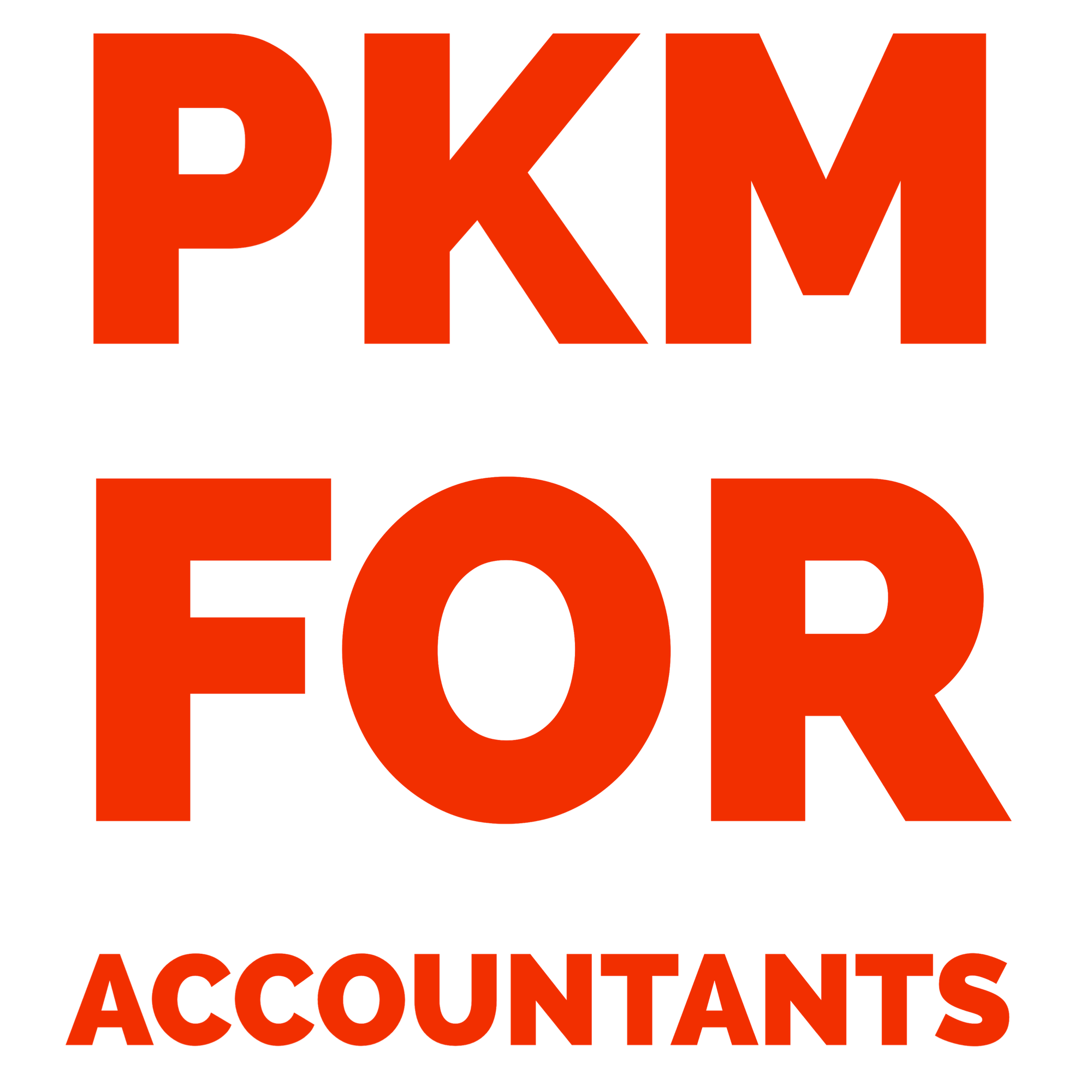Mastering Note-Taking for Accountants: Getting Started with Logseq
Note-taking is an essential skill in a professional setting, yet it's often assumed that everyone knows how to do it effectively. In this blog post, we'll explore a powerful note-taking application called Logseq and how it can change the way accountants organize and manage their information.

Note-taking is an essential skill in a professional setting, yet it's often assumed that everyone knows how to do it effectively. In this blog post, we'll explore a powerful note-taking application called Logseq and how it can change the way accountants organize and manage their information.
The Quest for Effective Note-Taking
Taking notes in a work environment can be challenging, especially if you're dealing with a large volume of information. Traditional tools like OneNote, Word, or Google Docs fall short for me when it comes to organizing and retrieving crucial details.
I remembered taking a note somewhere but struggled to find it efficiently when I needed it. I also have ADHD, which means my brain processes and manages information much differently than my peers. This realization led me to embark on a personal note-taking journey, eventually leading me to Logseq.
Enter Logseq: A Linked Thinking Application
Logseq stands out from traditional note-taking applications because it employs linked thinking—a concept popularized by Nick Milo. This approach involves creating interconnected notes, forming a web of information that makes it easy to identify connections and visualize in a knowledge graph.

Why Logseq?
1. Simplified Setup and Ease of Use
Logseq, an open-source application similar to Obsidian, offers a seamless experience with minimal setup requirements. While it offers plugins like Obsidian, I felt like Logseq's out-of-the-box setup made it easier to get up and running, making it an ideal choice for those seeking simplicity in their note-taking process and those avoiding the endless black hole of customization.
2. ADHD-Friendly Note-Taking
For individuals like me with ADHD, Logseq's linked thinking structure provides a natural and intuitive way to capture and organize thoughts, preventing the need for excessive time spent on organizing notes. I spend most of my day in my daily notes section and create notes as I go.
3. Markdown Files for Flexibility
All notes in Logseq are saved as Markdown files, allowing users to effortlessly switch between Logseq and other applications like Obsidian, providing flexibility and adaptability in your note-taking workflow. This also means notes can be saved locally on your machine, and synched to cloud storage services like Dropbox, Google Drive, OneDrive, iCloud, or Logseq's own sync service.
Mastering Logseq for Accountants
This isn't the guide for Logseq. It's a guide. By sharing how I use it, you will find out how it works and what needs to be modified for your workflow.

Daily Notes: Your Chronological Feed
One standout feature of Logseq is the ability to create daily and view a chronological feed of all your notes. These daily notes serve as an outline for your day, capturing everything from meetings to tasks. Using the double-bracket shortcut [[ allows you to create specific pages for more detailed notes, effortlessly linking them back to your daily notes.

Tagging for Client Management
Accountants often deal with client-specific information. Logseq simplifies client management by allowing you to create main client pages and tag relevant clients in individual notes. This approach ensures that all related information is easily accessible, streamlining your workflow.
I create pages for individuals as well but differentiate them from other pages by adding @ before their name e.g. [[@Jimmy]].
Tagging for Topic Management
Accountants also deal with various topics. Practice management, industry developments, legislative changes, accounting standards changes, etc. You don't need me to tell you we deal with an overwhelming amount of information. Logseq makes it easier to tag your notes to make it easier to sort through the noise and avoid digging through digital piles of bookmarked links and snippets.

Linkable PDF Editor
Perhaps one of the most useful features of Logseq is the built-in PDF editor. Logseq provides the ability to drop in a PDF, highlight, and annotate. What makes this better than editing elsewhere is that each time you highlight, you can link directly to a highlight so you can reference it in other notes and easily return to that specific section of the PDF. If you deal a lot with PDFs, this feature alone is worth a try.

Additional Features, If You Need Them
Logseq also has a built-in task management system, flashcards, and whiteboards. I will discuss those in a future post because based on my experience, they're unnecessary if you're getting started and you may already have a separate app with those features.
Before You Download
If you run your own practice, you may be able to skip this part.
If you're part of a larger organization, this is for you. While Logseq is open-source, confirm your IT policy allows you to use this tool. I had to submit a request for my IT to approve the download and due to our IT policy, I'm limited to the plug-ins I can use and how I sync my notes. I ultimately found a setup that works for my daily workflow, but you may need to advocate a bit.
As more people embrace the PKM movement, I'm hopeful larger organizations realize the power of these kinds of tools and release us from the shackles of your standard enterprise suites.
That's not to say you can't implement an effective PKM system with standard enterprise tools. It'll just look a little different 🙂
Conclusion
In linked note-taking, Logseq emerges as a powerful tool for accountants seeking a more efficient and organized approach to managing information. Its linked thinking structure, daily notes feature, and knowledge management capabilities make it a valuable asset in a professional setting. Whether you're dealing with client specifics or organizing your daily tasks, Logseq provides a user-friendly platform for accountants to take their note-taking skills to the next level. Try Logseq today and change the way you capture and manage information in your work.
